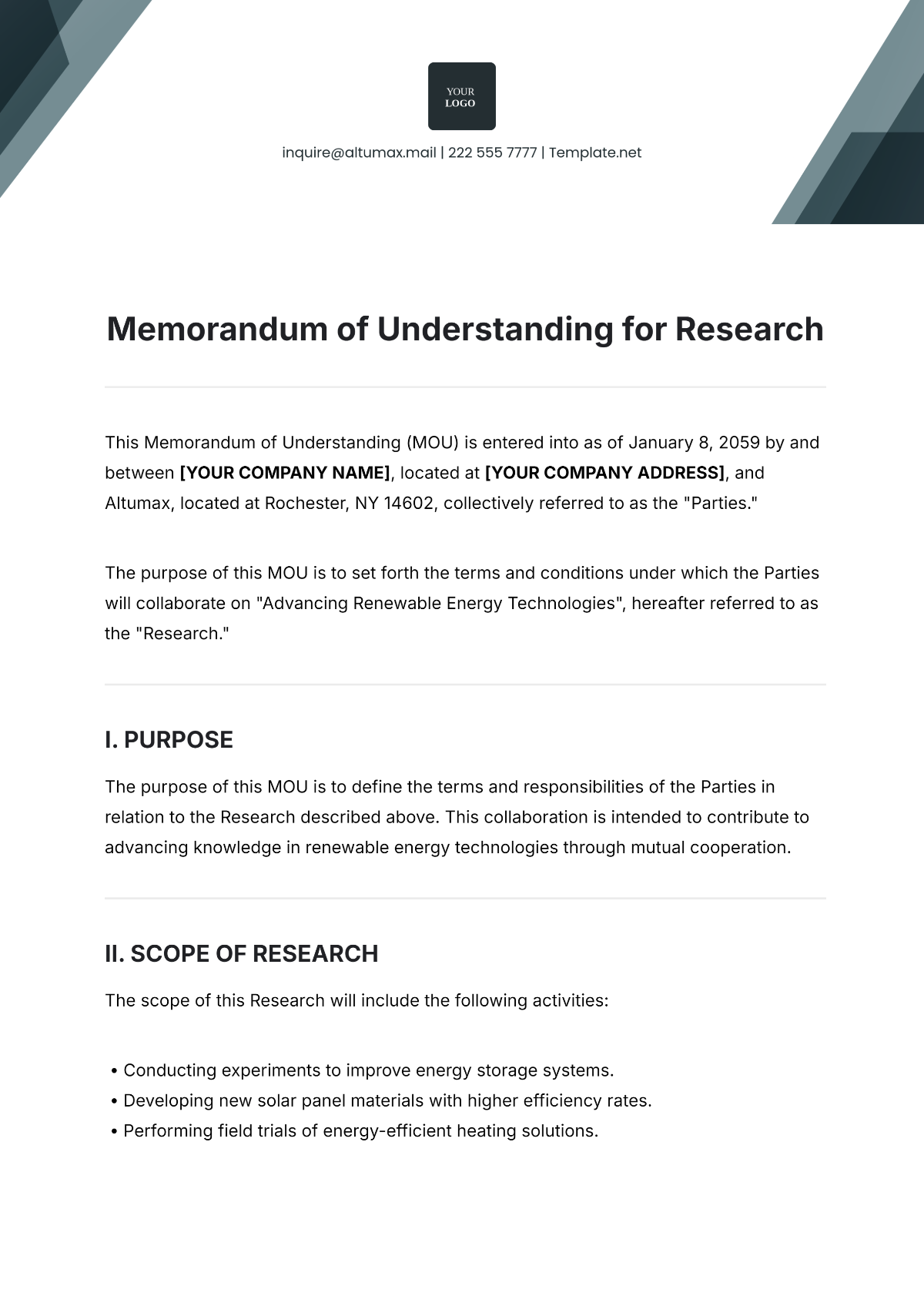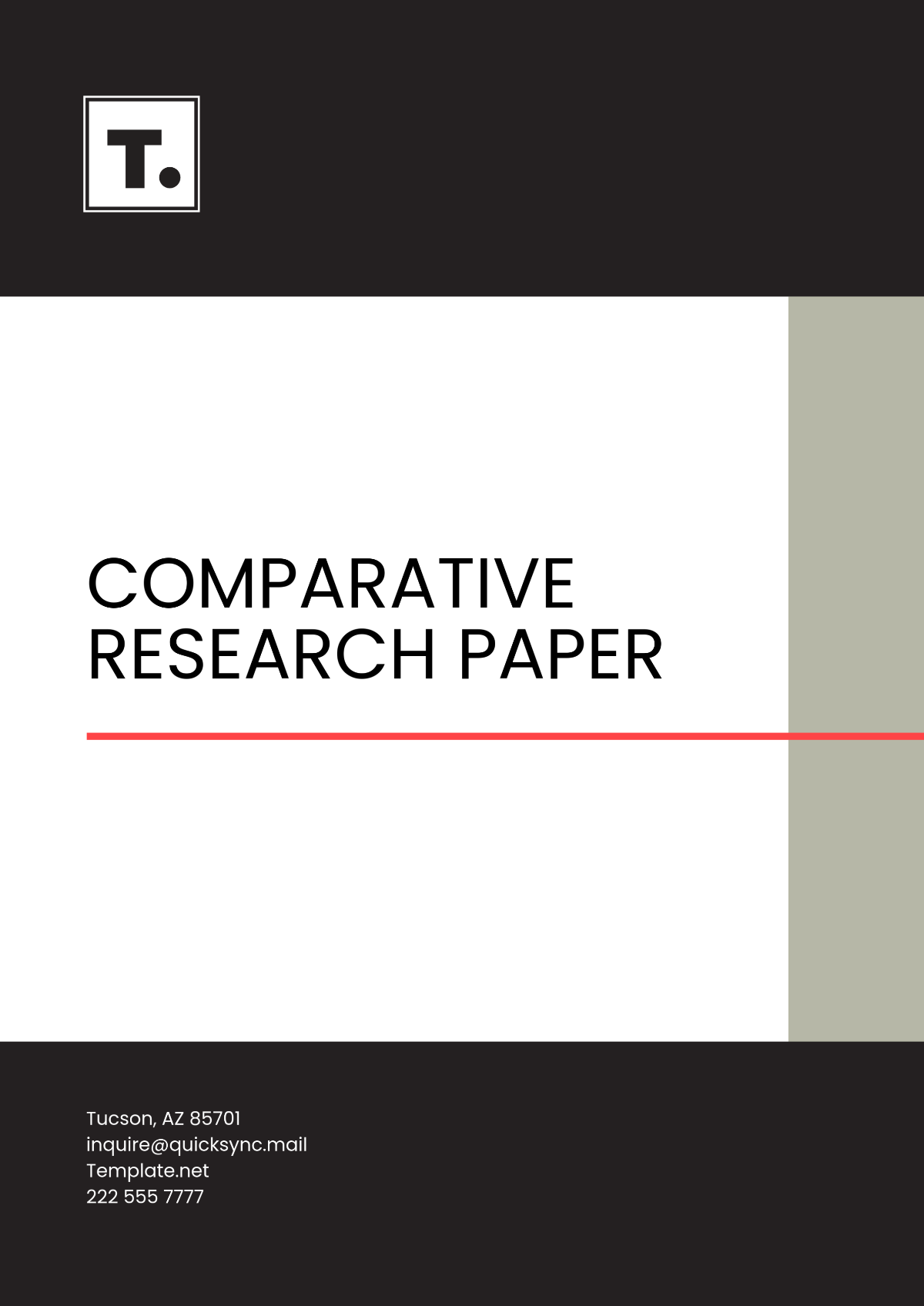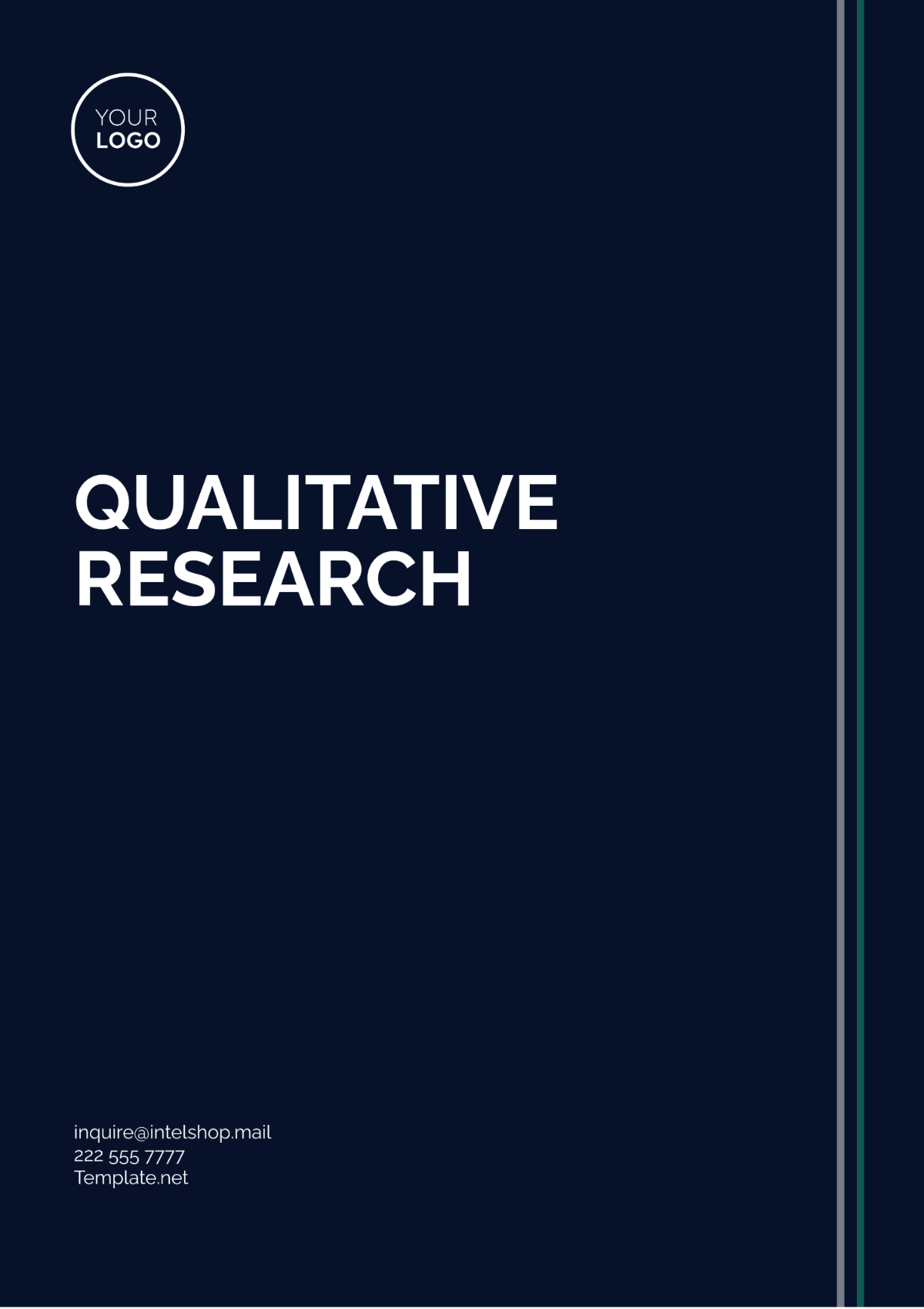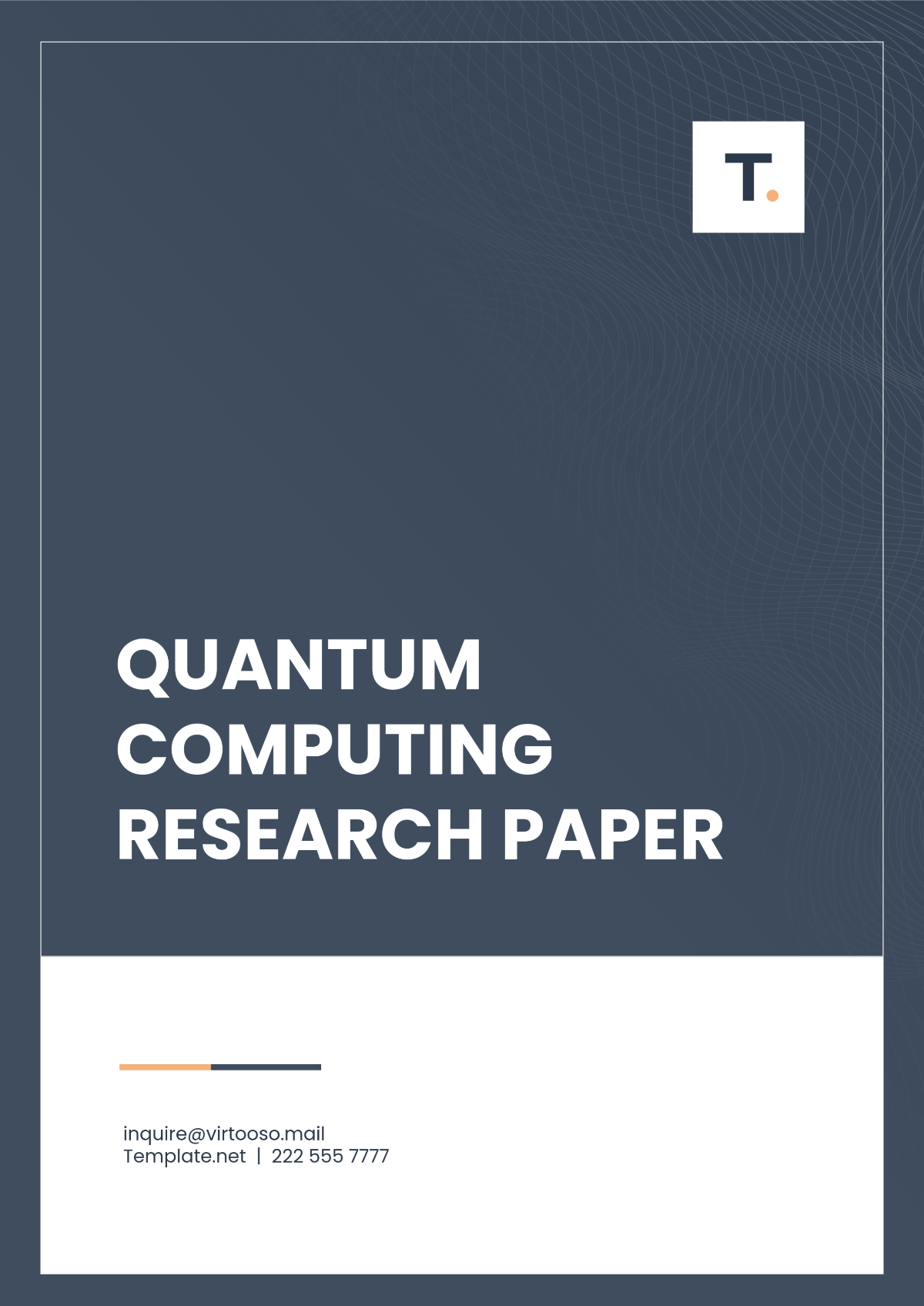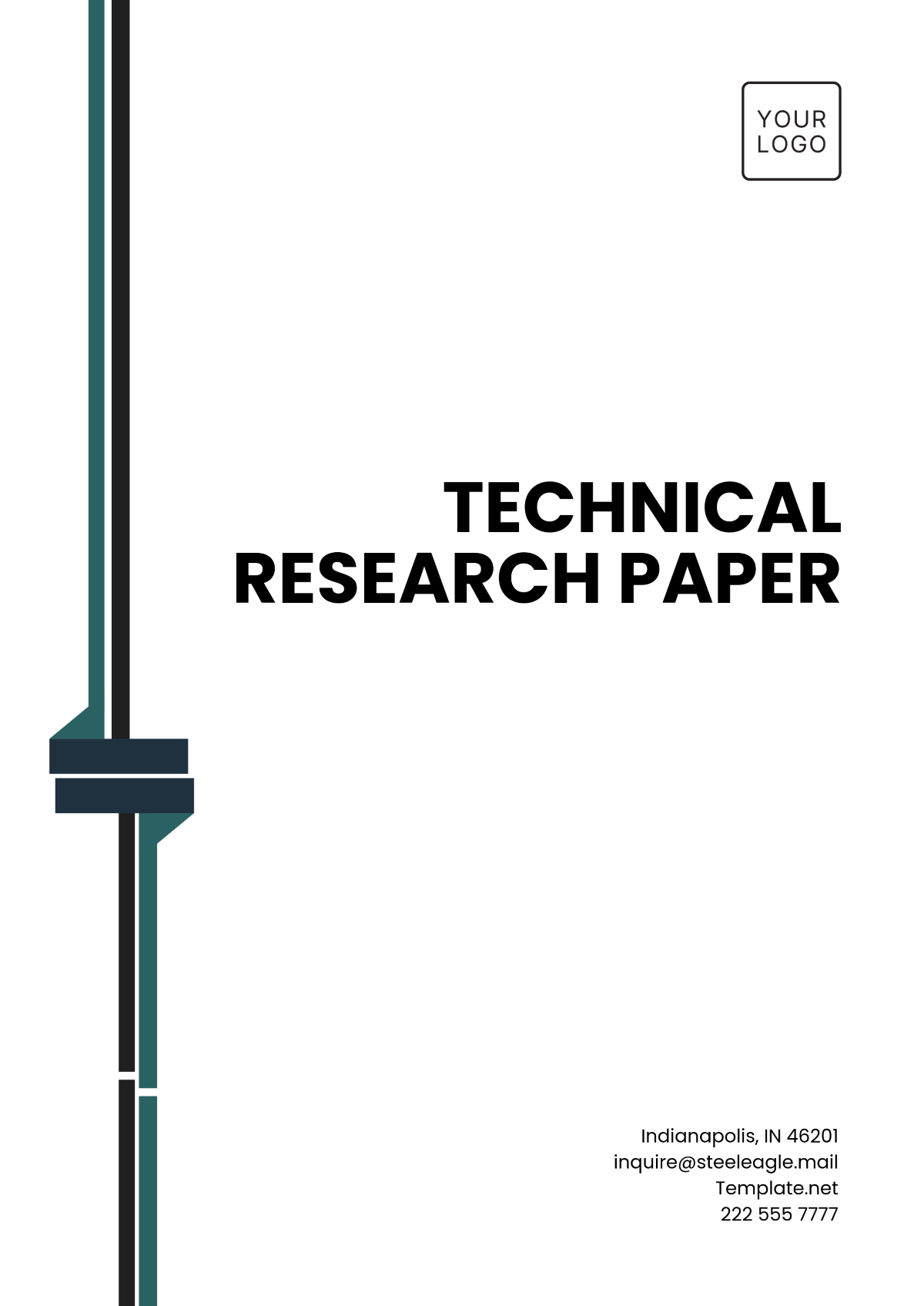Free Academic Research Project Specification Template
Academic Research Project Specification
Prepared By: [Your Name]
I. Introduction
This project specification outlines the objectives, methodology, expected outcomes, and management strategies for an academic research project titled "Impact of Artificial Intelligence on Modern Education Systems." This research aims to provide a comprehensive understanding of how AI technologies are transforming the educational landscape, enhancing learning experiences, and posing new challenges to educators and institutions.
II. Background and Rationale
The integration of artificial intelligence (AI) in education is rapidly evolving. The need to investigate this transformation originates from several key factors:
Technological Advancements: The swift and ongoing advancements in artificial intelligence technology bring transformative and groundbreaking modifications within the educational sector.
Educational Gaps: The amount of extensive and detailed research examining the wide-ranging effects and implications of artificial intelligence in education is currently limited.
Policy Making: Educators and policymakers require comprehensive data-driven insights to make well-informed and evidence-based decisions.
III. Objectives
A. Primary Objectives:
To analyze the current state of AI integration in education.
To assess the benefits and challenges presented by AI in educational contexts.
To evaluate the effectiveness of AI-driven educational tools.
B. Secondary Objectives:
To recommend strategies for educational institutions for effective AI adoption.
To identify future research directions in the field of AI in education.
IV. Methodology
The research will be conducted using a mixed-methods approach, combining quantitative and qualitative data collection techniques to ensure a comprehensive analysis. The following methods will be utilized:
A. Literature Review
An extensive review of existing literature on AI in education will be conducted to gather secondary data, identify research gaps, and establish a theoretical foundation for the study.
B. Survey
A structured survey will be administered to a diverse sample of educators, students, and administrators to gather quantitative data on their experiences and perceptions of AI in education. The survey will include:
Demographic questions
Likert-scale items
Open-ended questions
C. Interviews
Semi-structured interviews with selected key stakeholders will be conducted to obtain in-depth qualitative insights. The interviewees will include:
Educational Technology Experts
Teachers and Professors
Students
Policymakers
D. Data Analysis
Data collected from surveys and interviews will be analyzed using relevant statistical and thematic analysis techniques. The analysis will focus on identifying trends, patterns, and correlations to answer the research questions effectively.
V. Expected Outcomes
The research is anticipated to yield the following outcomes:
Research Findings: Comprehensive findings on the current state, benefits, and challenges of AI in modern education.
Policy Recommendations: Actions and strategies for policymakers and educators to effectively incorporate AI technologies in teaching and learning processes.
Future Research Directions: Identification of key areas requiring further investigation to advance the understanding of AI's impact on education.
VI. Project Management
The project will be managed using a structured approach to ensure timely completion and high-quality results. The management plan includes:
A. Project Timeline
Phase | Duration | Activities |
|---|---|---|
Initial Planning | 1 month | Defining objectives, methodology, and preparing proposal |
Literature Review | 2 months | Conducting an extensive review of existing research |
Data Collection | 3 months | Administering surveys and conducting interviews |
Data Analysis | 2 months | Analyzing quantitative and qualitative data |
Report Writing | 2 months | Compiling research findings and writing the final report |
Dissemination | 1 month | Publishing and presenting research findings |
B. Resource Allocation
Resources required for the successful completion of the project include:
Human Resources: Research team, survey administrators, interviewers.
Funding: For survey distribution, software licenses, and publication costs.
Technical Resources: Data analysis software, recording equipment for interviews.
VII. Ethical Considerations
The project will adhere to the highest ethical standards, ensuring the confidentiality and anonymity of participants. Ethical considerations include:
Obtaining informed consent from all participants.
Ensuring voluntary participation with the right to withdraw at any time.
Maintaining data security and privacy.
VIII. Conclusion
This project specification provides a detailed roadmap for conducting a comprehensive investigation into the impact of AI on modern education systems. Through rigorous methodology, careful resource allocation, and adherence to ethical standards, the research aims to contribute valuable insights and practical recommendations to the academic community and policymakers.













